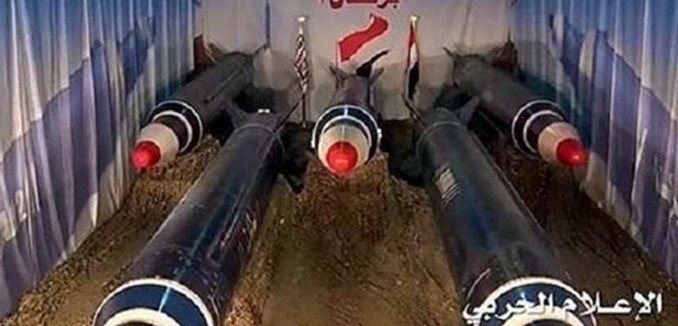A missile that was shot down last week as it approached Saudi Arabia’s King Khalid International Airport had Iranian “markings,” the top United States Air Force official said, supporting Saudi charges, the Associated Press reported Thursday.
“There have been Iranian markings on those missiles,” Lt. Gen. Jeffrey L. Harrigian, who commands the Air Force’s Central Command in Qatar, told reporters. “To me, that connects the dots to Iran.”
Harrigian’s remarks appear to corroborate Saudi charges attributing the missile to Iran.
The Saudi news agency said after the attack that an examination of the debris from the missile “confirmed the role of Iran’s regime in manufacturing these missiles” as well as the transfer of them to the Houthi rebels in Yemen.
Harrigian didn’t identify the type of missile—believed to be a Borkan 2h—used in the attack or how Iran evaded the blockade to get it to the Houthis.
How they got it there is probably something that will continue to be investigated over time,” Harrigian said. “What has been demonstrated and shown based on the findings of that missile is that it had Iranian markings on it. That in itself provides evidence of where it came from.”
Michael Knights, a fellow at The Washington Institute For Near East Policy who previously worked in Yemen, noted that Iranian officials have openly boasted of helping the Houthis and that the advances the Houthis have made in their missile production suggest that they have had outside help.
It is “not a stretch to believe that Tehran is supporting the Houthi missile program with technical advice and specialized components,” Knights wrote in an analysis Wednesday. “After all, the Houthis have rapidly fielded three major new missile systems in less than two years while under wartime conditions and international blockade.”
Iran has been caught numerous times in recent months smuggling arms to Yemen in direct violation the UN Security Council resolution 2231 that formalized the 2015 nuclear deal with Tehran and prohibits Iran from transferring weapons to another country without first getting Security Council approval.
[Photo: Tasnim News]




